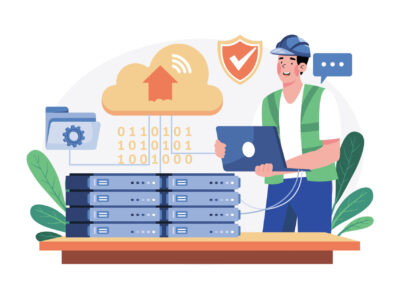In an era where environmental sustainability is gaining increasing attention, businesses are becoming more conscious of their carbon footprint and energy consumption. With the growing demand for digital services and data processing, data centers and servers are significant consumers of energy. As a result, energy-efficient server solutions have become a crucial consideration for organizations seeking to reduce operational costs, minimize environmental impact, and contribute to a greener future. In this article, we will explore the role of energy efficiency in server purchasing and provide tips for evaluating green server solutions.
Understanding the Significance of Energy Efficiency in Servers
Servers play a vital role in hosting applications, managing data, and powering online services. However, traditional servers often operate at high energy consumption levels, leading to increased electricity bills and a significant carbon footprint. The rising concern about climate change and the environmental impact of technology has put the spotlight on energy-efficient servers as an essential component of responsible business practices.
Energy efficiency in servers refers to the ability of a server to deliver optimal performance while minimizing power consumption. Green server solutions are designed to achieve this balance by incorporating various hardware and software features that reduce energy usage without compromising on performance or data processing capabilities.
The Benefits of Energy-Efficient Server Solutions
Embracing energy-efficient servers offers several compelling benefits for businesses:
- Cost Savings: Energy-efficient servers consume less power, resulting in lower electricity bills and reduced operational expenses over the server’s lifespan.
- Environmental Impact: Reducing energy consumption decreases greenhouse gas emissions, contributing to environmental sustainability and a cleaner planet.
- Corporate Social Responsibility: Adopting green server solutions aligns with an organization’s commitment to corporate social responsibility and demonstrates a dedication to environmental stewardship.
- Regulatory Compliance: Some regions have regulations and standards related to energy efficiency and environmental impact. Green server solutions help businesses comply with these regulations.
- Long-Term Viability: As energy costs continue to rise, investing in energy-efficient servers ensures long-term viability and competitiveness for the business.
Tips for Evaluating Green Server Solutions
When purchasing servers with energy efficiency in mind, consider the following factors:
- Energy Star and Efficiency Certifications:
Look for servers with ENERGY STAR® certification or other efficiency designations. These certifications indicate that the server meets strict energy efficiency guidelines set by regulatory bodies. - Power Usage Effectiveness (PUE):
PUE measures the energy efficiency of a data center by comparing the total power consumed with the power consumed by the IT equipment (servers). Choose servers from data centers with low PUE values, as this indicates efficient cooling and power distribution. - Energy-Efficient Components:
Assess the server’s hardware components for energy-efficient features. Look for low-power processors, solid-state drives (SSDs), and power-saving features such as dynamic voltage regulation and frequency scaling. - Virtualization and Consolidation:
Virtualization enables running multiple virtual machines on a single physical server, reducing the number of physical servers needed. This consolidation approach improves resource utilization and energy efficiency. - Idle Power Management:
Servers often experience periods of low activity or idle time. Servers equipped with idle power management features can dynamically reduce power consumption during these periods, contributing to energy savings. - Efficient Power Supplies:
Opt for servers with high-efficiency power supplies. Look for 80 PLUS® certified power supplies that convert a higher percentage of electrical input into usable output power, reducing waste heat. - Energy-Efficient Cooling:
Consider the cooling infrastructure in the data center. Efficient cooling solutions, such as hot aisle/cold aisle configurations and economizers, can significantly impact energy consumption. - Monitoring and Management Tools:
Choose servers with built-in monitoring and management tools that allow you to track power usage and identify areas for optimization. - Vendor Commitment to Sustainability
Select server vendors with a demonstrated commitment to environmental sustainability. Research their corporate social responsibility initiatives and eco-friendly practice - Lifecycle Consideration
Evaluate the entire lifecycle of the server, including energy consumption during manufacturing, usage, and end-of-life disposal. Opt for servers designed with sustainable and recyclable materials.
Conclusion
The role of energy efficiency in server purchasing is becoming increasingly critical for businesses aiming to reduce costs, minimize environmental impact, and uphold corporate social responsibility. Energy-efficient server solutions offer a range of benefits, including cost savings, environmental sustainability, and regulatory compliance. When evaluating green server solutions, consider certifications, hardware components, virtualization capabilities, power supplies, and cooling efficiency. Embrace servers with energy-saving features and robust management tools to monitor power consumption effectively. Partner with vendors committed to sustainability and responsible manufacturing practices. By prioritizing energy efficiency in server purchasing decisions, businesses can contribute to a greener future while ensuring optimal performance and cost-effectiveness for their IT infrastructure.


















Comments